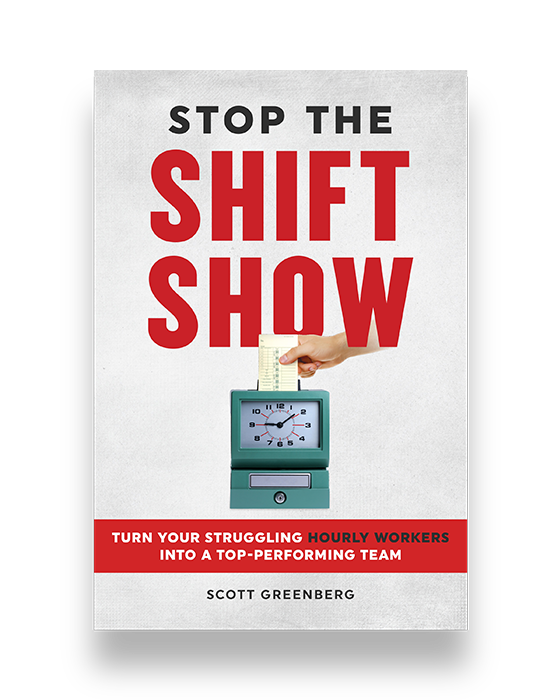As a hiring and retention keynote speaker, I work with a large number of franchises and restaurants. And I draw lessons from anywhere I can.
Last year I attended the Los Angeles Chargers home opener against the Dallas Cowboys. You’d never know the game was in Los Angeles, as the stadium was overrun by the Cowboy Nation. It was a wave of blue, white, and silver there to take the “charge” out of us Los Angeles fans. They dominated the venue and ultimately the score. It made me feel like a stranger in my own land.
The Dallas Cowboys organization has succeeded in creating more than a football team, a fanbase or even a brand; they’ve created a culture. They’ve assembled a massive following of loyalists who will travel, buy tickets, and spend a fortune in support of a team that hasn’t won their division in a quarter of a century. Because, as is the case with any culture, it’s less about accomplishment and more about belonging.
At a time when restaurants in particular are competing more for team members than they are for customers, never before has employee retention been so important. That means creating a best-in-class workplace that, like a great sports franchise, fosters loyalty and a sense of unity. And while you may not be able to get your team to paint silver stars on their face, investing a little time in improving your culture might be the very thing that stabilizes your staff and keeps your doors open.
In my presentations about building high-performance teams, I talk about identifying applicants that are the right fit for your business. That concept is a bit aspirational in the current staffing climate. Many employers today are having to hire anyone willing to show up. That means management must be much more intentional about training people in culture, lest the entire work environment fall apart and drive away their best employees.
Most franchise brands talk about culture and recognize its importance. Where they struggle is in execution. They don’t know how to create a good one. They think it just entails being nice to people. That’s a misunderstanding of what “culture” actually is.
Company culture refers to the social norms of a workplace. It’s how the team sees itself and what members expect from one another. It’s the goals they focus on and how they agree to interact. These understandings may be informal, or they can be deliberate.
Every group of two or more people has a culture, some by design and others by default. Consider a marriage, a musical group, a religion, a country, a high school or even a prison. The people in these institutions have an agreed upon way of communicating and getting along. If the culture is positive, the relationships are functional and emotionally satisfying. That creates loyalty. If the culture is toxic, the relationships are unhealthy and stressful. That leads to tension and turnover.
No business owner sets out to cultivate a dysfunctional team. It happens because management focuses only on employees’ duties and not on their interactions. They train the team on work, but not on teamwork. They don’t appreciate that unity can’t be expected; it must be promoted.
The many great small business owners I’ve met over the years who dominate their brands and hang onto employees because they prioritize culture-building. They hire for it (even in today’s climate). They train for it. They work on it constantly. Consequently, they enjoy more retention and better performance.
So, how do you create a great culture? It’s a big question. But there are three things I’ve observed among wealthy franchisees that you can also do to make a huge difference.
Establish a clear set of beliefs. We feel connected to others who see things the same way we do. Agreement promotes kinship. It’s why people find community in clubs, religion, politics, and other institutions focused on interests and perspective.
For a business, that means aligning your team around the same mission and values. What do you stand for? What are you trying to accomplish? Everyone wants to make money. But how do you want to be as a team as you pursue this? Create an operational philosophy and let that become the driving doctrine of your business.
Mission statements and value statements aren’t supposed to be marketing tools. They’re declarations of beliefs meant to guide team members on how to think and behave in the workplace. Used intentionally, they can be very helpful for your business.
One of Tropical Smoothie Café’s top franchisees, Nick Crouch, described for me in an interview for my book the culture that he and his partner Glen Johnson have built and very purposefully maintain. Every prospective employee applying to work in one of their scores of restaurants must watch a video about what the company stands for and demonstrate alignment with their organizational values in order to be considered for a job.
“Our culture is much more than a page on a website or an inspirational poster on a wall,” he told me. “We use it to make every decision in our company. … We base hiring, promotions, team member reviews, performance and communication off of it.” It’s one of the main reasons he gives for their massive growth and success.
Taco John’s multi-unit franchisee Tam Kennedy trains employees not just to serve breakfast, but also to fulfill their mission of preparing people for the day. “We need to be the sunshine inside that they may not be feeling outside,” she said. Her loyal team members take this mission seriously and work hard to deliver on it. Her competitors are just selling breakfast burritos.
Take time to define the beliefs and values of your business. Then hire for them and hold people accountable to them.
Establish a clear set of rituals. Rituals serve to reinforce beliefs. Think of religious services, birthday parties, the singing of the national anthem or the seventh inning stretch. Doing these in groups brings us closer together and reminds us of the values we share.
Many businesses make time for rituals to ensure their teams remain united. I once got to watch the busy kitchen staff of the Ritz Carlton New Orleans do their daily stand-up meeting where they all recited their company credo and discussed their values. When Qdoba Mexican Eats brought me in to keynote their franchise convention, I learned about one franchisee who holds “family night” every Wednesday. After work, the employees have a potluck. They don’t just eat food; they share food. It’s a social experience that allows team members to see each other as people, not just as co-workers. This weekly ritual has made the team more cohesive and has led to some of the best employee retention in the entire system.
I used to have teambuilding nights where I’d take my employees through group development exercises. Other franchise owners thought I was crazy to pay hourly workers to do this stuff. But the ROI I got was immeasurable. It bonded my team and kept most of them around for years.
It’s not enough for rituals to be social or fun (like a holiday party). They must be regular, predictable experiences that reinforce your company values and beliefs.
Train for culture. Employee onboarding should include time learning about whom your team is and how the new employee is expected to interact among them. Teach them the group’s way of doing things. Discuss your mission and values and what that actually looks like. In other words, don’t just tell them to be a team player. Point out the actual practices you implement that demonstrate teamwork. Then, as you would with their work responsibilities, supervise the employee closely to ensure they enhance the culture and don’t weaken it.
Running a fast-paced restaurant is stressful and demanding. You may be tempted to wave off the touchy-feely stuff. Or maybe you think culture-building won’t matter to young hourly workers who really don’t care. Skip these things at your own peril.
Your competitors want your employees. They’ll try to lure them away with more money. If that’s all you have to offer, you’re going to lose them. But chances are, that extra dollar or two an hour is all your competitors have to offer.
Compete instead with culture. Create a great place to work. Don’t just be nice to employees. Make them feel part of something. Unite them into a cohesive unit. That’ll matter more to them than an extra few bucks on hour. It’s cheaper and more effective.
And please encourage them to root for the Chargers.
[A version of this article originally appeared here in Nation’s Restaurant News]
For more information about Hiring & Retention Keynote Speaker, Scott Greenberg, please call 520-548-1160 or contact us through this website.





